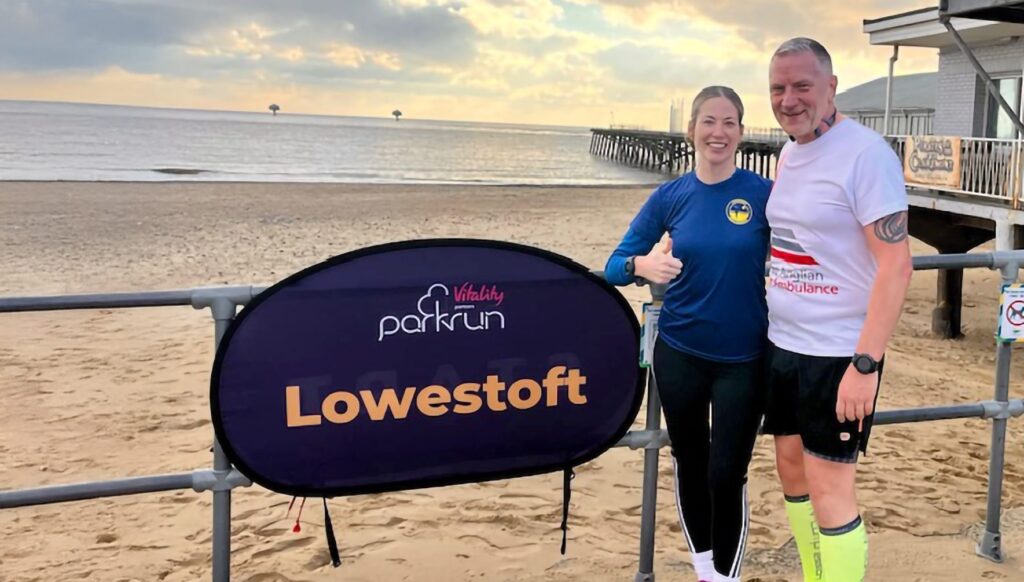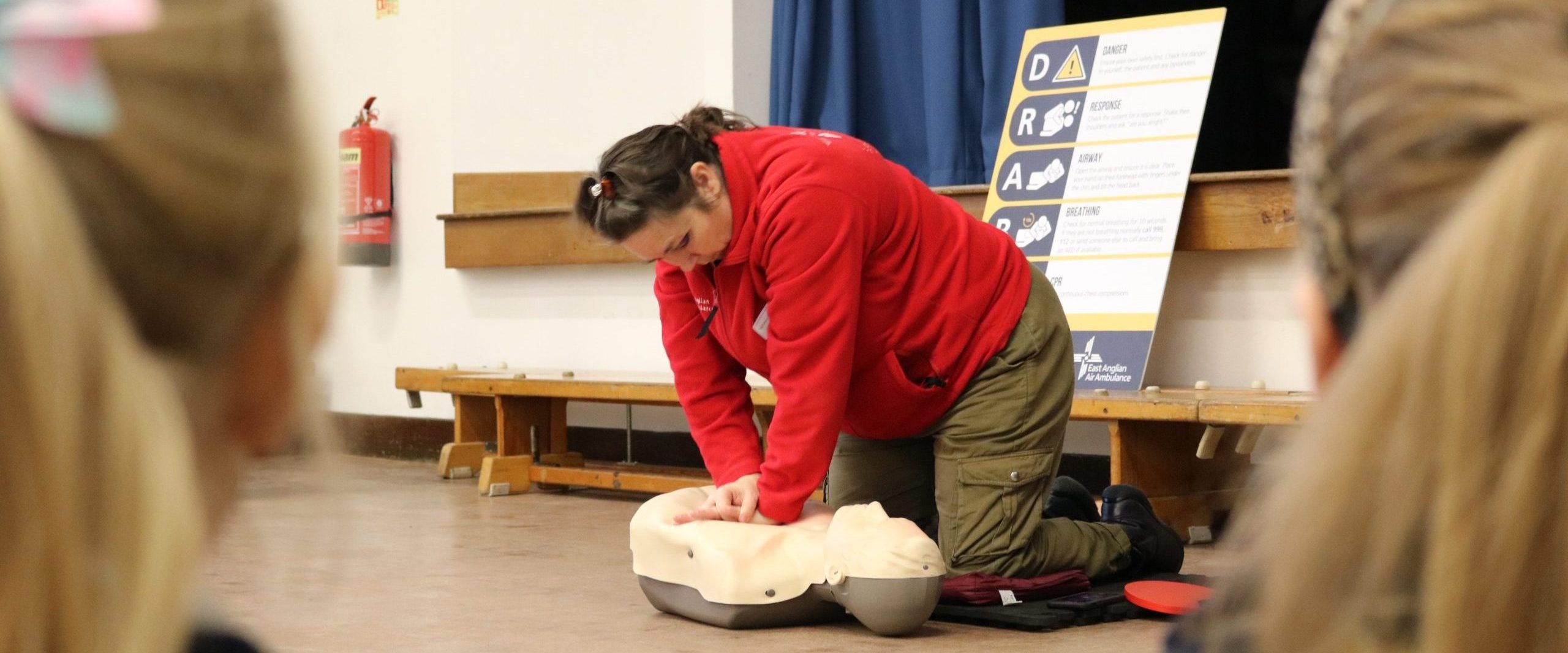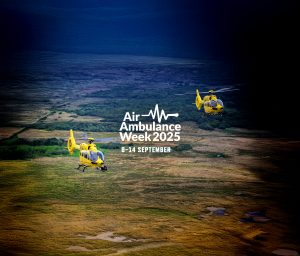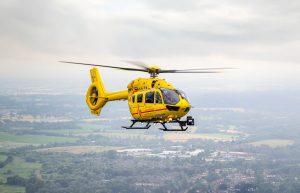This Restart a Heart Day (Thursday 16 October) East Anglian Air Ambulance (EAAA) has announced that 100,000 people have been trained in lifesaving CPR (Cardiopulmonary Resuscitation) skills by the charity. This marks a major milestone in EAAA’s mission to empower communities and improve survival rates from cardiac arrests in our region.
EAAA provides advanced critical care 24 hours a day, 365 days a year, by air and road, to the most seriously ill and injured people in Bedfordshire, Cambridgeshire, Norfolk and Suffolk. Just over a quarter of the charity’s emergency taskings every year are to cardiac arrests – life-threatening medical emergencies where immediate bystander CPR and early defibrillation could help to save a life.
100,000 people have now trained by EAAA in effective CPR and how to confidently use a defibrillator since 2018, when the charity’s Community CPR Training Programme was established. This means more people can act in the event of somebody suffering a cardiac arrest, before the arrival of the emergency services, to give somebody the best chance of survival and recovery.
Josh Lawrence, EAAA Community CPR Training Manager, says, “Sometimes bystander CPR is performed on strangers, but in many cases, it is performed on loved ones. We are humbled that 100,000 people have stepped forward to learn about the chain of survival – a series of time sensitive actions and interventions taken in the event of a cardiac arrest – to potentially become somebody else’s lifesaver, therefore building stronger and more resilient communities.”

On 10 August 2024, 46-year-old Paul Rouse from Lowestoft had just crossed the finish line at the town’s Parkrun when he collapsed. Parkrun volunteers and participants recognised that he was in cardiac arrest and immediately came to his aid.
Off-duty Nurse, Lottie Smith performed chest compressions on Paul.
Lottie explains, “All of a sudden, Paul lost consciousness, and he turned blue. I’m a nurse so my instinct was to start chest compressions. Through my yearly updates at work I receive CPR training, but this was the first time I’ve needed to perform CPR out of a hospital setting.”
Lowestoft Parkrun Director, Rob Fawcett rushed for a defibrillator, there was one located just a few metres away at the town’s Claremont Pier.
“I knew that the defib wouldn’t deliver a shock if it didn’t need to, but when we put the pads onto Paul it said, ‘shock advised’. It delivered one shock, and I could see the colour come back to Paul as oxygen began to circulate again,” Rob says.
Meanwhile, a crew from East Anglian Air Ambulance were tasked, arriving by helicopter at the scene just 16 minutes after lifting. The Anglia One (Norwich) crew, Dr Liam and Critical Care Paramedic Page, gave Paul a full assessment at the scene and administered advanced medication, before airlifting him to the Norfolk and Norwich Hospital for further treatment. Paul had a stent fitted to correct an artery defect, which had contributed to his cardiac arrest. He spent three days in hospital and then several weeks recovering before starting cardiac rehabilitation. Just 260 days after his cardiac arrest, he ran the Manchester Marathon in aid of East Anglian Air Ambulance.
Josh Lawrence, Community CPR Training Manager with EAAA, says, “Paul’s story is a powerful example of the lifesaving impact of immediate CPR and early defibrillation. The out-of-hospital cardiac arrest survival rate in the UK is only around 8%; however, if a defibrillator is used alongside effective CPR within the first 3-5 minutes, before the arrival of the emergency services, the chances of survival can increase to between 40% – 70%.”

Book your FREE CPR training
Learn how to save a life by booking a free one-hour CPR and defibrillator training session with East Anglian Air Ambulance.




